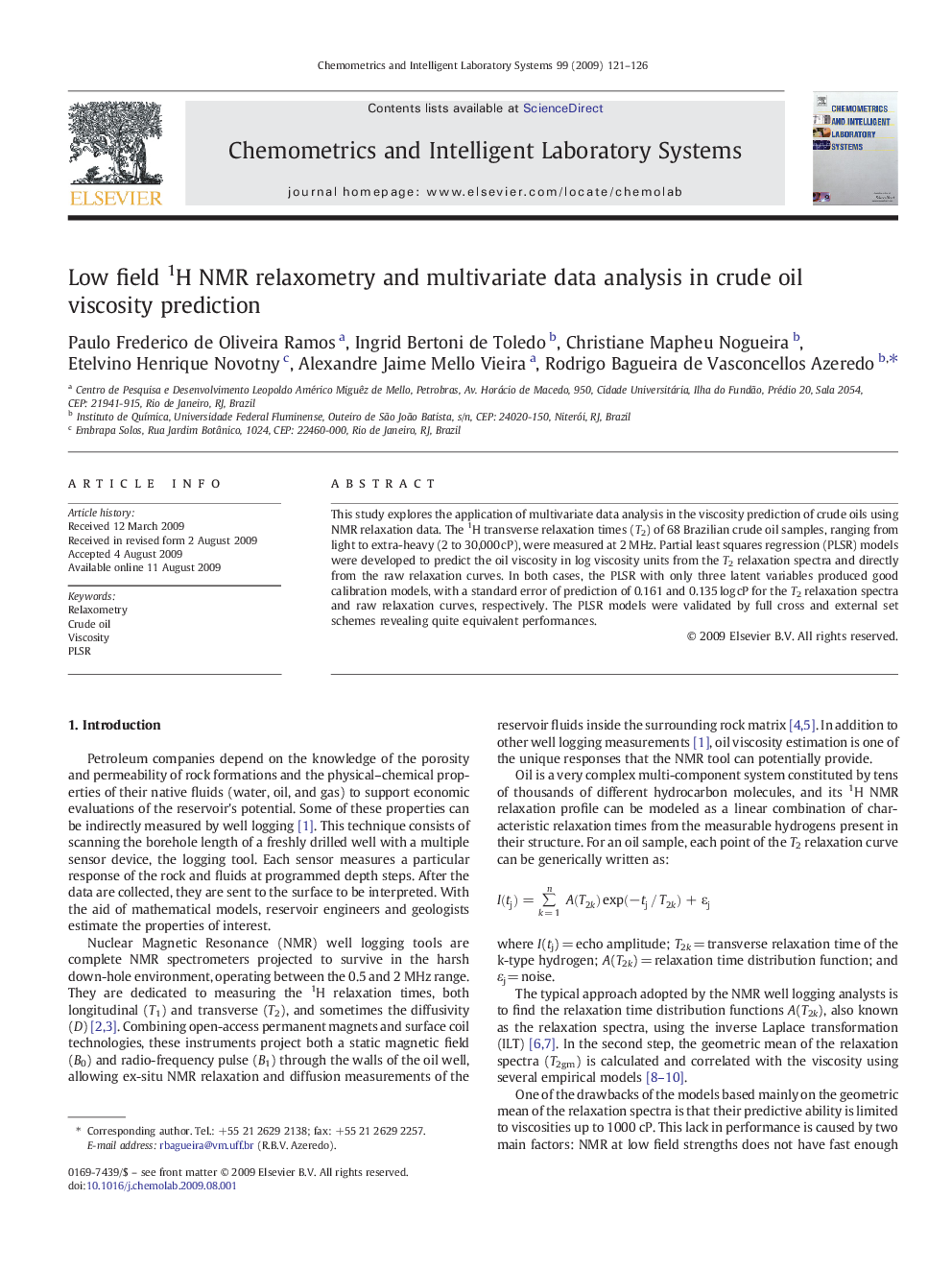| Article ID | Journal | Published Year | Pages | File Type |
|---|---|---|---|---|
| 1181086 | Chemometrics and Intelligent Laboratory Systems | 2009 | 6 Pages |
This study explores the application of multivariate data analysis in the viscosity prediction of crude oils using NMR relaxation data. The 1H transverse relaxation times (T2) of 68 Brazilian crude oil samples, ranging from light to extra-heavy (2 to 30,000 cP), were measured at 2 MHz. Partial least squares regression (PLSR) models were developed to predict the oil viscosity in log viscosity units from the T2 relaxation spectra and directly from the raw relaxation curves. In both cases, the PLSR with only three latent variables produced good calibration models, with a standard error of prediction of 0.161 and 0.135 log cP for the T2 relaxation spectra and raw relaxation curves, respectively. The PLSR models were validated by full cross and external set schemes revealing quite equivalent performances.
